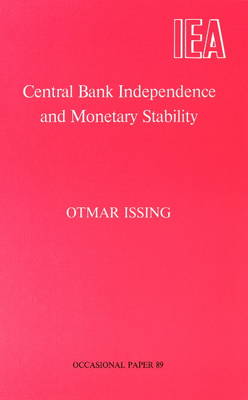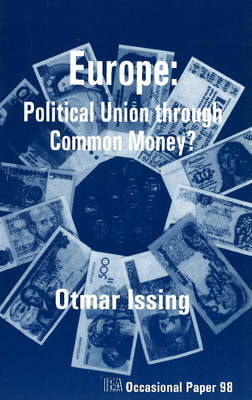Occasional Paper
2 primary works
Book 89
Central bank independence is now a major issue in debates about institutional reforms designed to improve economic performance. Professor Issing's paper is notable for its scholarly discussion of the meaning of 'independence' and his analysis of its effects. Moreover, because of his position inside the Bundesbank which is among the most independent of central banks and which provides a model for the constitution of the proposed European Central Bank he writes with a degree of expertise not available to most authors. Interest in central bank independence arose from the world-wide acceleration of inflation in the 1 970s which stimulated interest in means of 'anchoring' anti-inflation policy. Germany was in advance of other countries in recognising the importance of price stability and es-tablishing an institution to produce it, making the Bundesbank independent in 1957. Professor Issing argues that when independence is coupled with a price stability objective, economic performance appears to improve. Not only is inflation lower, but there is evidence that real growth is higher.
In his view, central bank independence comes 'top of the list' of institutional arrangements designed to safeguard the stability of money.
In his view, central bank independence comes 'top of the list' of institutional arrangements designed to safeguard the stability of money.
Book 98
CONTENTS: The Lessons of History; Stages of European Integration; The Role of Monetary Policy in the Integration Process; Common Currency as Pace-Setter for Political Union; The Labour Market & Social Union; Compensatory transfers; Possible Political Tensions; Institutional Arrangements & 'Good Money from Outside'; The Difficulties & Risks of Monetary Union; Barriers Against Deficits & Debts; Constitutional restraints; Ambivalence of the Political Union; Summary.

